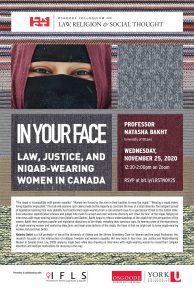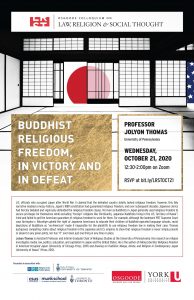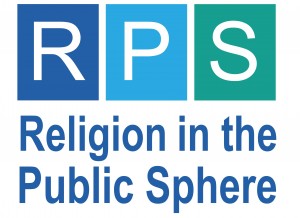 November 25, 2020
November 25, 2020
“In Your Face: Law, Justice and Niqab-Wearing Women”
Professor Natasha Bakht
Via Zoom
Register: bit.ly/LRSTNOV25
“The niqab is incompatible with gender equality.” “Women are forced by the men in their families to wear the niqab.” “Wearing a niqab makes living together impossible.” This talk will examine such claims made by the majority to constrain the lives of a small minority. The rampant spread of legislation banning face veils globally has transformed niqab-wearing from a non-existent issue to a spectacular threat to the nation state. Even educated, sophisticated scholars and judges who claim to accept and even welcome diversity will “draw the line” at the niqab. Relying on interviews with niqab-wearing women from Ontario and Quebec, Bakht helps to refocus understandings of the niqab from the perspective of the wearer. Bakht then analyzes popular and  legislative objections to the niqab, revealing their specious logic. By hearing some of the experiences of niqab-wearing women and analyzing objections and legal proscriptions of the niqab, the hope is that we might get to know niqab-wearing women and ourselves better.
legislative objections to the niqab, revealing their specious logic. By hearing some of the experiences of niqab-wearing women and analyzing objections and legal proscriptions of the niqab, the hope is that we might get to know niqab-wearing women and ourselves better.
Natasha Bakht is a full professor of law at the University of Ottawa and the Shirley Greenberg Chair for Women and the Legal Profession. Her research focuses on the intersection of religious freedom and women’s equality. Her new book In Your Face: Law, Justice and Niqab-Wearing Women in Canada (Irwin Law, 2020) analyzes niqab bans while also drawing on interviews with niqab-wearing women to reveal their complex identities and multiple motivations for dressing in this way.
In collaboration with:
Watch the lecture:





